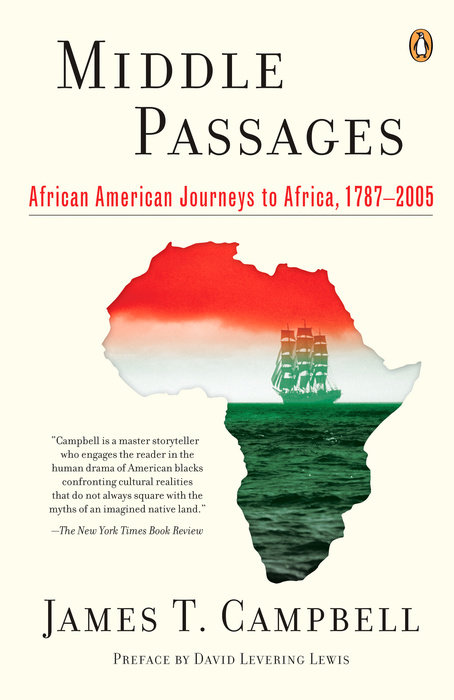James Campbell’s Middle Passages: African American Journeys to Africa, 1787–2005 rightly treats Ayuba’s extraordinary adventures as prologue. For the story he wants to tell really begins with those freed blacks whose goal was to “return” not to the specific place where they came from—to their families, to people who knew them—but simply to their continent of origin. That story begins in 1787 when three ships set out from England for West Africa carrying several hundred indigent blacks (some of them press-ganged, some volunteers), accompanied—this tells you something about the views of their sponsors—by nearly a hundred white prostitutes. Their destination was the mouth of the Sierra Leone River, where they established the settlement of Granville Town, named for the great British antislavery campaigner Gran-ville Sharpe. He was one of the leaders of the Committee for the Black Poor, which had sponsored this little convoy on its journey to what he called “The Province of Freedom.” The Sierra Leone colony was the first attempt by white philanthropists to resettle people of African descent in Africa.
As Campbell’s graceful and engaging account makes clear, the debates about Sierra Leone and, later on, about Liberia—both of them colonies created by self-styled philanthropists for the return of freed black slaves and their descendants—have to be seen in the context of arguments in Europe and the Americas about the place of black people in the world outside Africa. These arguments produced strange alliances. Among blacks, there was a division between, on the one hand, those who thought their fate lay in the New World, the only world they knew, a place whose economy and society they had helped to create; and, on the other, those who believed that the hostility of white people was intolerable and could never be reduced, and who concluded that their only hope was in territories (in Africa or elsewhere) where they could form a majority. As the nineteenth century wore on, both sides increasingly framed their claims in nationalist terms: with few exceptions—notably the persistently integrationist Frederick Douglass—they were divided not over whether African-Americans belonged together, but about where they belonged.
White supporters of black emigration had a variety of motives. Some believed that free blacks should be expelled from the Americas because their presence threatened the system of slavery. But many white opponents of slavery also felt that blacks should be returned to Africa, because, as Abraham Lincoln (a “manager” of the Illinois Colonization Society) once put it, “there is a physical difference between the white and black races which …will forever forbid the two races living together on terms of social and political equality.”
